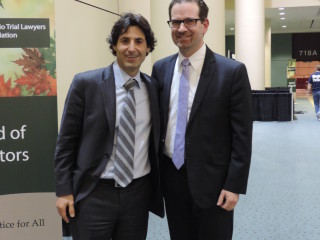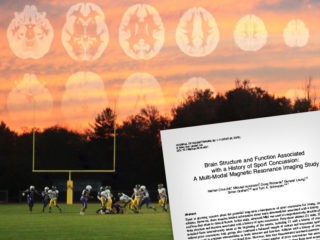This was an appeal by an insurer of a decision assigning priority for accident benefits to it instead of the first responder. The main issue on appeal was the question of dependency.
Released August 3, 2016 | Full Decision [CanLII]
Paula Chartrand and her 2 daughters, Athena and Destiny were injured in a collision on August 21, 2010. They applied for and received accident benefits from Intact, the insurer for the driver of the vehicle in which they were passengers.
Intact took the position that Allstate should be responsible for the accident benefits, because it insured the vehicles of Ms. Chartrand’s boyfriend, Kyle Houghton.
Ms. Chartrand had moved into Mr. Houghton’s residence with the girls seven weeks before the collision, relocating from Sudbury to Sarnia. At the hearing, while it was acknowledged that during the seven weeks, the claimants were principally dependent upon Mr. Houghton, it was not appropriate to use this period to determine dependency for purposes of the SABS, because in his view, “the relationship was not one of permanence”.
Intact appealed this decision, claiming that the arbitrator had incorrectly imported a permanency requirement into his analysis, and had erred in principle by speculating on future events. The appeal judge reviewed the arbitrator’s decision on a standard of correctness, and set it aside, holding that Allstate was responsible for the claim.
Allstate brought the present appeal claiming that the arbitrator’s decision was reasonable, and the judge had applied the wrong standard of review.
After a thorough review, Justice LaForme for the court held that the appropriate standard of review concerning an insurance arbitration was reasonableness, following Dunsmuir. However, from this position, his Honour held that the arbitrator’s decision concerning dependency was unreasonable.
Justice LaForme noted that the arbitrator had applied the correct legal principles, including:
- the claimant must be principally dependent (the 51% principle);
- one does not simply look at a “snap shot” of the actual day of the collision;
- the Miller v. Safeco factors (including duration and amount of dependency, financial and other needs of the alleged dependent, and ability of dependent to be self-supporting); and
- each case is fact driven.
The arbitrator was presented with two time frames. He acknowledged that, over the seven weeks pre-collision, the claimants were dependent, but over the course of the prior year they were not. He favoured the 1 year time frame, because on the balance of probabilities he was not convinced that the relationship between Mr. Houghton and Ms. Chartrand was likely to be permanent. This was based on a value judgement about Ms. Chartrand’s lifestyle and occupation.
Justice LaForme held that this approach was unreasonable as it failed to conduct the requisite analysis and was not compatible with the applicable legal principles. Specifically, the arbitrator failed to look at the relationship during “a period of time which fairly reflects the status of the parties at the time of the accident”, and applied a one-size-fits-all approach.
All of the evidence pointed to the intention of both parties to consider their relationship permanent. Ms. Chartrand relocated and was looking for work. Mr. Houghton assumed the financial burden of caring for the claimants after the move. The girls had taken steps to enroll in a school in Sarnia. Although the arbitrator appeared to accept this evidence, he focused on Ms. Chartrand’s past as an indicator of her likely future. His Honour stated that this was irrelevant to the analysis of the relationship at the time of the collision.
As a result, the court found that, although the appeal court judge had applied the wrong standard of review, he had not erred in setting aside the arbitrator’s decision, and dismissed the appeal and awarded costs in the amount of $15,000.
Read the full decision on CanLII










